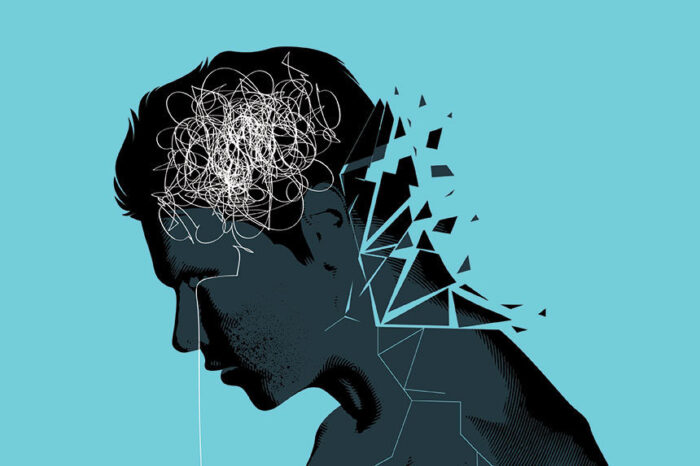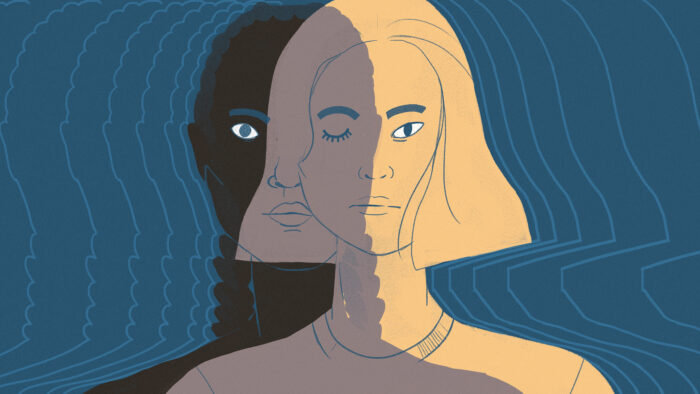
There’s no denying that our lives were irrevocably impacted by the COVID-19 virus. It changed everything. From how we work to how we communicate with friends and family, the pandemic altered our day-to-day lives. But it also shone a light on how we, as a society, perpetuate certain stigmas.
In the beginning, COVID-19 wasn’t well understood. All that was known was where it originated from — China. Because of this, many people started associating the virus with people of Asian descent. As a result, they avoided restaurants, stores, and other establishments that were owned or frequented by people they perceived to be Chinese. This is an example of social stigma in the context of health.
Associating a person or group of people with a specific disease, ideology, mentality, etc. is how stigmas are perpetuated. The past year highlighted how common stigmas are in our society. But it also showed us what we need to do to get rid of them.
From being embarrassed by STIs to assuming people with a mental illness are “crazy,” here are five stigmas to leave in 2024.
1. The STI Stigma

Sexually transmitted infections (STIs) are incredibly common, but there’s still a great deal of stigma surrounding them. Some people don’t realize how widespread STIs really are. Others are under the impression that only people with numerous sexual partners require STI testing. That simply isn’t true; all it takes is one sexual encounter to become infected. You can find more information on nurx.com.
Some STIs, like HPV, infect over half of all sexually active people. According to the CDC, genital herpes infects one out of every six people between 14 to 49 years old. As noted, STIs are common, and that’s partly due to the fact that many are asymptomatic.
A common misconception about STIs is that they all exhibit symptoms. While some do, a majority don’t. That’s why getting tested is so important. To keep yourself and your partner healthy, make sure you get screened for sexually transmitted infections. To do so, you can either schedule an appointment with your doctor or order a testing kit online.
2. The COVID-19 Vaccine Stigma

There’s no denying COVID-19’s impact. Regardless of how pandemic-weary you feel, it’s clear that for life to get back to normal, this virus has to be taken seriously. So let’s leave the talk about “vaxxed sheeple” being “superspreaders” and “biological time bombs” behind. Instead, follow the science and focus on how to slow the spread and make sure everyone feels safe.
Statistics show that most unvaccinated adults consider the vaccine ineffective. In fact, they believe getting vaccinated could harm their health more than contracting COVID-19. This misconception comes from the belief that COVID-19 isn’t as serious as the media makes it out to be. Among those individuals who say they won’t get the vaccine, almost 80% say the pandemic has been exaggerated in the news. In some communities, the anti-vaxx sentiment is so strong that getting immunized results in social ostracization.
It’s long past time to reject this thinking. The reality is, getting vaccinated can protect you against the virus. It’s true that the vaccine won’t necessarily stop you from getting COVID-19. But according to the CDC, it’s a highly effective way to prevent hospitalization and death if you do.
3. The Mental Illness Stigma

Prior to the pandemic, mental health issues weren’t as openly discussed. This wasn’t because mental health issues didn’t exist. The pandemic, however, brought mental illness to the forefront.
During the lockdown, people were forced to largely stay home. Millions of Americans lost their jobs and struggled financially, all while trying to avoid contracting a deadly virus. Kids weren’t allowed to go to school, employees had to work from home, and spending time with friends and family became a rarity. All of this change and isolation negatively impacted many people’s mental health.
According to a survey conducted by the US Census Bureau, over 42% of people reported symptoms of depression and anxiety in December 2024. That’s an 11% increase from December 2019.
The idea that people don’t have mental health issues is a dangerous one. It causes those who suffer to feel alienated, which might keep them from getting help. It’s incredibly important for the stigma around mental health to disappear, so people don’t suffer in silence.
4. The Race Stigma

Last year, the U.S. saw nationwide protests after George Floyd was killed while being arrested by police in Minneapolis. That single event sparked an ongoing conversation around systemic racism and unconscious bias. Social media was flooded with videos of police encounters that resulted from “driving [walking, barbecuing, etc.] while Black.” These contrasted sharply with those of white people walking away from police after behavior that would likely result in a Black person getting arrested or worse.
Like policing, employment is another area where racial stigma and unconscious bias perpetuate unequal outcomes. A Harvard University study found that 25% of Black job applicants heard from potential employers after they “whitened their résumé.” This means they changed their résumé to remove racial clues, such as by switching to a more white-sounding name. On the other hand, only 10% of applicants who left their ethnic names on their résumés were called. Unconscious bias training is one way we might begin to leave racial stigma in the past where it belongs.
5. The Political Stigma

Not only did we experience the pandemic in 2024, but we also experienced a great deal of political conflict. While COVID-19 could — and should — have been viewed as a common threat, the response to the virus turned partisan.
If people took COVID seriously and favored public health measures to slow its spread, they were labeled Democrats. If they opposed such measures, they were labeled Republicans. This polarized response perpetuated stereotypes between the two parties and created even more division during the pandemic.
Yet plenty of Republican voters and office-holders have embraced the COVID vaccine, for example, while certain Democratic constituencies remain resistant. Party identification doesn’t tell you everything you need to know about a person. So in 2024 and beyond, let’s leave the political stereotypes behind. Instead of expecting someone to hold a particular position because of their political party, don’t assume anything.
The reality is, we all perpetuate stigmas even if we don’t mean to. Our parents, friends, and the media have taught us things that aren’t necessarily true. That’s how stigmas grow. The longer we falsely believe something, the bigger it gets, and the more it spreads.
But just because we learned false things doesn’t mean we can’t unlearn them. To leave these five stigmas in the past where they belong, let the unlearning begin now.








